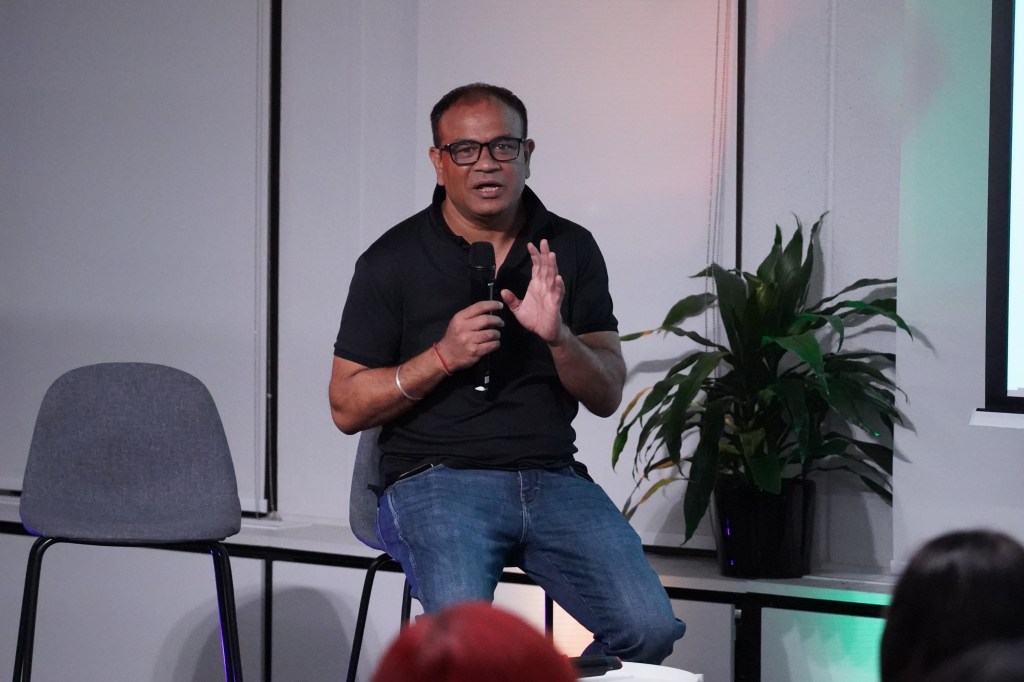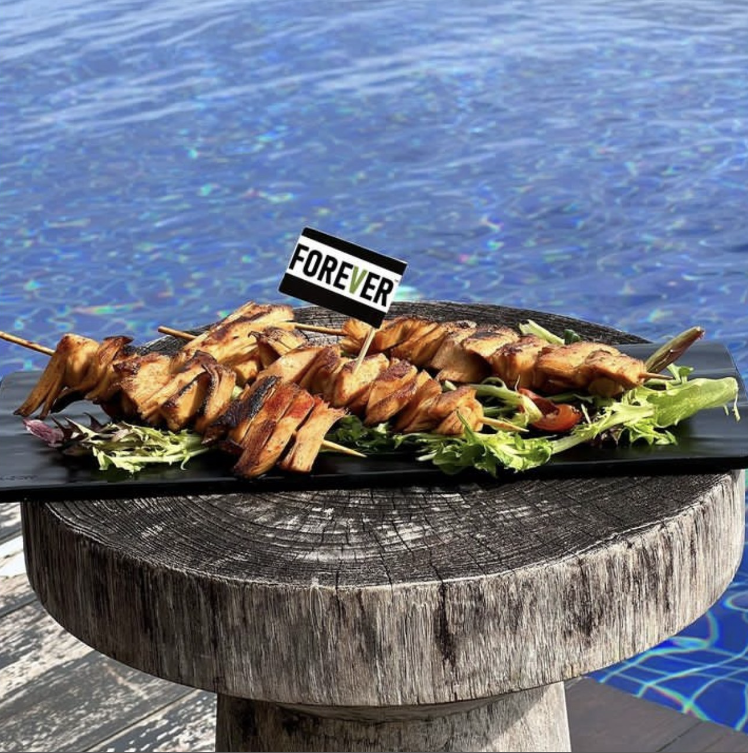We continue our in-depth interview with Singapore-based Shandi Global, who says its FOREVER brand of plant-based chicken has more protein than conventional poultry.
In the second part of our interview, we spoke with co-founder Dr. Gaurav Sharma and ANZ business development head Ali Farid about the differences in consumer behaviour between their two key markets of Singapore and Australia.
They also shared their thoughts on how to change (or not change) the eating habits of customers with regard to plant-based meats.
(Read Part I of our interview here).

Having a foot in both Singapore and Australia, how do you view the differences in consumer behaviour between the two markets with regard to plant-based meat?
Gaurav: Every market is different. And every consumer’s behaviour is different. Australian culture is a mix of a lot of cultures, while Singapore is primarily dominated by Chinese, Malay, and Indian. So most of the cuisines in Singapore you’ll find are either fusion of Chinese, Indian, or Malay, or they are very specific to those cultures.
[In Asia], there have been vegetarian or plant-based consumers for thousands of years. In Singapore, you will find mock meat in almost every Chinese restaurant because a lot of Chinese Buddhists are vegetarian. They don’t even consume onions or garlic.
The Indian population is largely vegetarian but they are not really attracted to plant-based because they are very used to diets of vegetables. Like myself, I don’t need a transition point. I’m already on the pure vegetarian side.
Australia is different. They are transitioning towards the vegetarian or vegan, healthier or more sustainable diet. So for them, it’s very important to still have that taste element of chicken or beef. It’s a transition before they go to pure lentil curry like I can eat.
And that’s why we are focusing more on the Australian market, because here in Asia, whoever is already vegetarian doesn’t really need it, honestly. But in Australia, there are people who are in the transition or who have recently become vegan and were not historically vegan.
And that’s why Australia is more open. It’s a very blended culture. They eat everything. And then we thought, that’s the best place for our product because it will fit into that diversity. And they are more open to accept new things or try new things. Asia is not that open, I would say.
Ali: My daughter, actually, at the age of five, went vegetarian, spent about two years and then slipped up on a chicken nugget. And that’s how she broke it. But the reality is every time we went out to a restaurant, the choices got her upset. It was either a protein-less salad or carbohydrates like a full margarita pizza.
Myself and my wife were vegan for two weeks. That didn’t last long because we didn’t know how to maintain nutrition and convenient access to food. Because very few of the supermarkets have those options.
You first debuted your products in Australian schools. What are your primary market channels in Australia for your FOREVER products?
Gaurav: We are just starting from food services. And from food services, we’ll go into retail.
We have a few philosophies. Don’t replace the food, just replace the meat. Because every food is beautiful, every culture is beautiful, and we need to respect what people are eating. And that’s why our first try is to get as many ready products into the market.
We don’t need to go directly, actually. We are happy to be “Intel inside”. Whether you buy IBM or you buy HP, Intel is always in there. We go into the computer and you get used to our processor.
We started from Alban Uni. And they loved it. And then Monash University. The campus barbecues are all vegan now – I am really proud to say that. Earlier, there was another brand they were using. Now they are only buying our products, and every week. They buy a lot in quantity. So schools are one of our main target customers.

In Singapore, we are also quite strong in schools. Because we need to create a generation of plant based consumers. So we started from primary schools. In Australia, we will go into that as well. But we started from mid level and went into universities.
I really feel proud that in Singapore, a lot of my neighbours whose kids study in American schools or Australian or Canadian schools [that use our products] say to me, “My son started eating vegan food.” I’m really proud to be the perfect entry point for all kids.
There’s no kid that doesn’t like a nugget. Whether it’s meat or plant based.
Gaurav: We really feel good about that.
The high end customers eating at $30 or $40 a meal? It’s very difficult to change the way they have been eating. But if we create a whole generation of sustainable food consumers, that will have a long term impact. So that’s why we are very strongly focusing on early adopters and early ages.
Ali: From a point of sustainably delivering the protein to the populace, chicken has had its challenges. We’ve had shortages of eggs in Australia, we’ve had them followed by shortages of chicken. Other countries have had avian flu. And with chicken being a protein delivery system for so much of the population of earth, when there is an issue like that, there is also malnutrition, as people don’t know where to go.
So if we can create a healthier, protein positive, hormone-free product that is more sustainable in the way we grow it, manufacture it, and deliver it year round, we’re democratising protein, and it’s a product for the populace, regardless of what your food choice is.
Gaurav: My motto is that even if you are a meat eater, you will like it and eat it. And I guarantee the nutrition. You’re not short of protein. Forget about whether it’s vegan or not. We purposely don’t describe it as a vegan because I don’t want to create that stereotype. When you say vegan, it becomes a little political. So it’s just a high protein food. If you like the taste and the texture, just go for it.
To stay up-to-date on the latest industry headlines, sign up to Future Alternative’s enewsletter.
Posted on:


